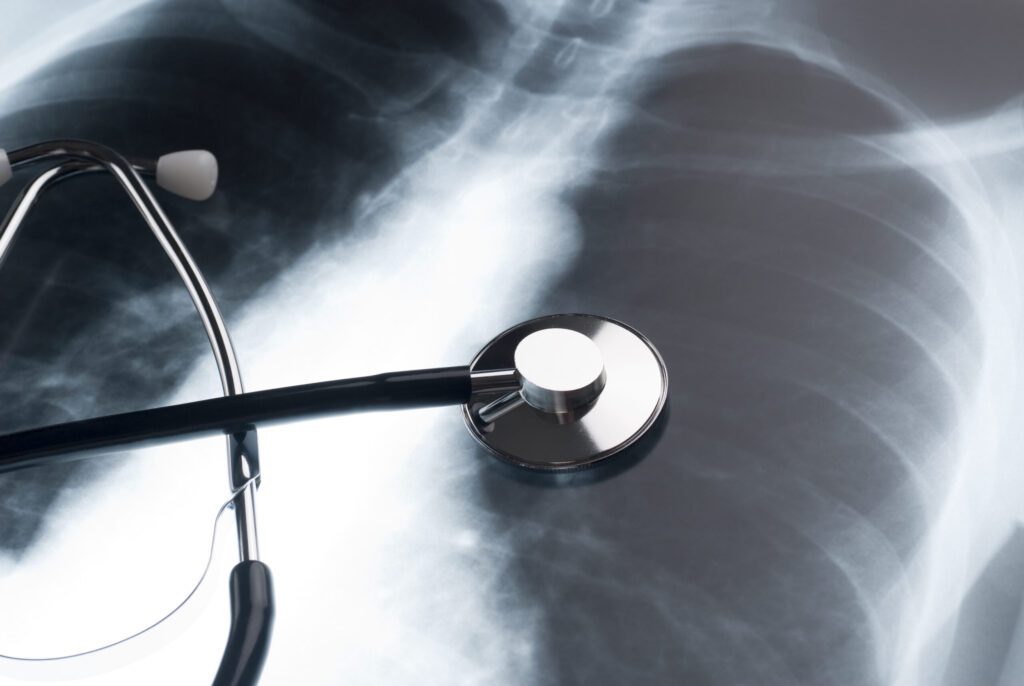Demand for Respiratory Therapists On Rise Amid COVID-19
by TERESA SCHIFFER
Inhale…exhale….
Many of us take the ease of breathing for granted. We breathe in and out all day and night, rarely giving the life-sustaining act a second thought. All that changes when we come down with sinus congestion or a respiratory infection that leaves us struggling for breath. Now imagine that instead of a simple cold or allergy attack, you have a more serious condition, such as asthma, emphysema or COVID-19. Suddenly, breathing becomes a struggle for survival.
Respiratory therapists are a vital member of the clinical team that delivers the treatments to help ease your suffering and promote your recovery. Hubert Decilian is one such professional who could be on your treatment team. Decilian is a registered respiratory therapist at Winter Haven Hospital and also teaches students in the Respiratory Care program at Polk State College.
Respiratory therapists are an integral part of a medical team. They act as life-support specialists and are trained to provide a wide variety of diagnostic and therapeutic services for patients who are struggling with lung or heart disorders. Respiratory therapists help their patients by administering appropriate medications through mist, dry powder, or inhalers, by assisting with lung exercises, intubating patients as needed, and much more.
Demand for respiratory therapists has been on the rise in recent years due to an increased prevalence of respiratory illnesses. They are especially sought-after in these days of COVID-19 because respiratory therapists are specifically trained in the use of mechanical ventilation – a critical component of care for severe cases of coronavirus.
“COVID has put a spotlight on our field,” Decilian says. “It has emphasized how very important we are because we monitor patients, we adjust, and we can liberate patients off of mechanical ventilations and life-support machines. So yes, COVID has helped bring attention to the need for respiratory therapists, but we were in high demand prior to COVID, too.”
The continuing COVID-19 crisis in the U.S. presents a number of challenges for healthcare providers. New research is coming out almost daily regarding how the virus spreads, how it enters the body, and what effects the disease has on various systems within the body. Physicians, nurses, and therapists have to stay well-informed and be able to adapt quickly to new protocols in order to provide patients with the best possible medical care.
“COVID is a respiratory disease. It causes very intense pneumonia. It’s right up our alley,” Decilian explains. “It’s caused us to really think outside the box and use all of our respiratory tools and our understanding of everything that goes along with the lungs and any ailments that affect them – how to ventilate correctly, how to adjust, and how to monitor those patients who do need respiratory assistance.”
Decilian graduated from Polk State College in 2015 and worked as a hemodialysis technician before becoming a respiratory therapist. He wears several hats as a respiratory therapist, including clinical instructor with BayCare. Having the opportunity to mold the minds of young medical workers is one aspect of Decilian’s position that he takes very seriously.
“Do your homework,” is Decilian’s advice to medical students who are undecided on what field of study to pursue in depth. “Shadow all fields, all positions, because the medical field isn’t about just nurses and doctors. There are all types of disciplines. Catch your niche, and to catch your niche you need to survey every aspect of the medical field.”
Just as the ability to breathe is a fundamental necessity for maintaining life, the respiratory therapists that treat patients with breathing problems are an irreplaceable part of the clinical team. Though the Respiratory Care program experienced some disruptions this year due to COVID-19 and the necessary quarantine and social distancing guidelines, Polk State College has quickly adapted to continue providing students with the education and workforce training they need.
Polk State students are learning about the cardiovascular and pulmonary systems online, in addition to how to properly ventilate and oxygenate patients. The training the students are receiving right now is going to serve them well as they move from the classroom into the real world setting where they will be faced with the immediate demands of handling a pandemic. This is a momentous time to enter the medical field as a respiratory therapist.
“We, as respiratory therapists, hold a spot just as elusive as a doctor, or a nurse, or a physical therapist, or any other clinical team member. We’re part of a whole, and without us, there is an empty hole. With us included, we, as a whole, can help patients that come in with anything to leave with an improved quality of life. Respiratory therapists are as important as any other member of the clinical team.”
